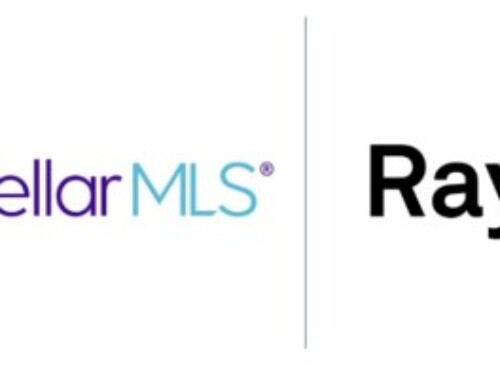
Somehow, the daily articles about CCP and Private Listing Networks have faded out of the media. Real estate news outlets will always find new topics. But before we move on, there are lessons to unpack about the role of the MLS and the role of policy. Frankly, service to the broker has been diminished in favor of service to the consumer and the agent. Most leading firms believe that the role of the MLS is to serve the broker. Afterall, the broker is responsible for the agent and the consumer.
The original purpose of the Multiple Listing Service (MLS) was built on a simple yet powerful idea: brokers sharing listings privately among peers. Long before digital platforms and mobile apps, real estate brokers met informally in smoky cafes, jotting down notes on homes tucked discretely into their pockets. These “pocket listings” weren’t initially intended for public view; instead, they represented valuable insider information, broker-to-broker.
As these casual exchanges became more structured, pocket listings transformed into printed listing books. These books became essential tools, filled with available properties and recent sales data, serving as tangible reflections of the collaborative spirit among brokers.
Over time, these books naturally evolved into digital databases, expanding their scope and accessibility. Yet the fundamental essence remained unchanged: the MLS is about brokers collaborating and sharing valuable market insights privately with other brokers. This included office exclusives and private transactions among family members and friends. For the benefit of all, the transaction facts are shared with other firms because they impact pricing and the market.
Today, as the industry grapples with evolving consumer expectations and technology shifts, revisiting the origins of the MLS offers critical perspective. Never let a good crisis go to waste. The buyer anti-trust crisis removed half of the definition of the MLS. The MLS was defined as cooperation and compensation. Now it’s just cooperation. Let’s rethink. Let’s reimagine.
The idea of a private listing network isn’t new; it’s the very foundation of MLS history. By embracing and refining this concept, MLSs have an opportunity to enhance their value proposition to brokers, providing secure, broker-focused environments that align with their original mission. Some have argued that every MLS is a private network. There are many MLSs today that have fewer than 100 agents, and even fewer brokers. And, there are “private networks” with thousands of agents and brokers.The difference is clear as mud.
Rather than being judged as exclusive or restrictive, private listing networks, when used responsibly and transparently, honor the initial vision of the MLS. They allow brokers to strategically manage listings, respect client privacy, and preserve competitive advantages. In an era of disruption and commoditization of data, reinforcing the original thesis of the MLS as a private, cooperative network may be the key to maintaining relevance and value in the real estate marketplace. It is a shared reference database, and like any reference source – timely, comprehensive, and accurate information are the three pillars of essential value.
Looking ahead, the modern MLS can further innovate by integrating advanced tools such as artificial intelligence, enhanced analytics, and dynamic collaboration platforms. These technologies can streamline MLS private listing networks, ensuring information is both secure and efficiently distributed among trusted participants. Brokers benefit by gaining deeper insights, improved listing management, and heightened collaboration—all within a confidential and professionally focused environment.
Historically, the MLS has always functioned as a private listing network, yet recent market changes brought new competitors into the space. Companies launching independent, non-MLS affiliated, not REALTOR® affiliated private listing networks led some MLSs to implement policies like the Clear Cooperation Policy (CCP). This policy mandates brokers to submit listings directly into the REALTOR® affiliated MLS, asserting that participation inherently requires full cooperation and comprehensive listing contributions.
While effective in curbing MLS competition in private networks, this approach wasn’t universally embraced. Brokers have grabbed pitchforks and hired anti-trust lawyers to battle each other over this issue, and MLSs have picked sides. This is not the spirit of cooperation.

Taking the High Road
In contrast to policy wrangling, MLSs such as MRED in Chicago and Unlock MLS in Austin took a different path. Rather than restricting competition through policy, they recognized the genuine need brokers expressed for private listing databases for pre-mls listing cooperation among brokers, and created their own platforms to fulfill this need. They didn’t dismiss market demand; they proactively provided solutions, fostering an environment of broker choice rather than compulsion. Most of all, they provided a conduit where the MLS was able to hold their position as a reference source – timely, comprehensive, and accurate information available to all brokers.
This strategic approach emphasizes MLS customer service and broker autonomy. By providing optionality and flexibility, MLSs demonstrate respect for broker business models and operational preferences. Reflecting on this philosophy, a quote by Laura Ashley, often shared by my mother, resonates deeply: “We don’t want to push our idea onto customers, we simply want to make what they want.”
In essence, MLSs are data service providers for brokers. Offering brokers the solutions they desire, coupled with the freedom to choose their preferred method of listing management, reinforces the MLS’s foundational role of facilitating cooperative brokerage relationships through exceptional customer service. If brokers want a private listing network – MLSs should provide them with that option.
The Problem of IDX
With the birth of IDX, MLSs expanded their role beyond simply facilitating information among brokers. They jumped headfirst into the advertising business, licensing brokerage data to entities that don’t sell real estate. Initially, this proved beneficial, empowering brokers to compete for consumer attention on the internet. Brokers begged the MLS for help, giving way to listing syndication. We now know that the advent of listing syndication drove the creation of powerful advertising portals that have drastically changed the landscape of real estate marketing. Many brokers today acknowledge they’ve lost the battle against these dominant portals. Lennox Scott of John L. Scott – often referenced as the father broker of IDX is clamoring for national IDX rather than no IDX at all. Think about that.
As brokers pivot, innovate, and reimagine their strategies, MLSs face a clear choice: remain entrenched in outdated practices or evolve alongside the brokers they serve. To continue providing meaningful value, MLSs must align closely with broker priorities, support their evolving strategies, and help them regain competitive footing in a rapidly changing marketplace. Offering brokerage options like a private listing network exemplify this effort. Ultimately, serving the broker as a customer means being responsive, flexible, and supportive of broker innovation. And best of all, the comprehensive data source of the MLS is not compromised.




